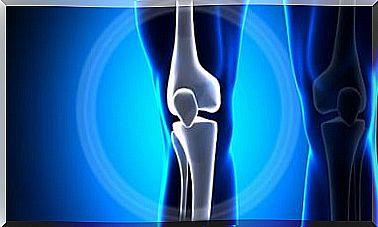What Is Enantyum Used For? Is It Anti-inflammatory?
Enantyum (or dexketoprofen ) refers to a drug that is widely used today. Thus, it is included within the group of NSAIDs (non-steroidal anti-inflammatory drugs), a group of anti-inflammatory and analgesic drugs.
It can be found both in gel form and in the form of tablets and solutions that are administered orally. Have you ever seen it in the pharmacy or do you know of a relative who has ever taken it? In the following article we will explain the characteristics and effects that this compound can develop so that you are better informed from now on.
Enantyum: uses and applications

Like other drugs within NSAIDs, its effect is mainly to reduce inflammation and discomfort. It can also help reduce fever. However, enantyum is more effective in treating certain types of pain such as:
- That of the joints or arthralgia. It is applied in patients with arthritis, tendonitis, sprains, etc.
- Of the teeth or odontalgias. For example, toothache.
- Head or headache. As a general rule, it is used in the treatment of mild headaches and migraines caused by muscle tension.
- Menstrual or dysmenorrhea. It occurs during menstruation in women and can cause anxiety, fatigue, nausea, abdominal pain and even fainting.
- Of the musculature or myalgia. Likewise, it can be caused by a wide variety of factors: injuries or blows, overexertion, etc. They appear when the patient has poor postural hygiene or performs intense physical exercise.
- Of the stomach and intestines (gastralgia).
- From the back (we also include lumbar and cervical pain). They can occur due to poor ergonomics or due to some alteration in nearby muscles or joints.
Mechanism of action
On the other hand, this drug produces a series of changes within the patient. Thus, it is capable of canceling or inhibiting the functions of certain enzymes responsible for synthesizing prostaglandins. This substance participates in a wide variety of activities within the body:
- It intervenes in inflammatory processes and in the sensation of pain.
- Regulate and maintain body temperature.
- Secretion of the gastric mucosa, a layer of the stomach’s inner lining that produces mucus to protect it.
- Maintenance of blood pressure.
- Contraction of the smooth muscles, which form internal organs, blood vessels, etc.
Side effects
Like all medicines, enantyum can also cause some adverse reactions in certain circumstances. However, these are usually rare, as this is a safe and effective drug.
As a general rule, patients are at risk of adverse or side effects when taking medications. Thus, the use of this chemical compound can cause in the subject:
- Eruptions
- Palpitations
- Dry mouth
- Nausea and vomiting
- Sleep disorders.
- Heartburn or pain
- Fatigue, tiredness, or general weakness.
- Dizziness and a feeling of vertigo. They can also appear with a headache or headache.
- Alterations in intestinal transit such as constipation or diarrhea. Also, the person may feel gas or flatulence.
Despite this, many of the adverse reactions discussed are minimally frequent. However, there is one of them quite common: an upset stomach.

As we have said, prostaglandins participate in the protection of the stomach, so by blocking their production we reduce the protective barrier of this organ. In this way, it is exposed to damage from external substances and ends up causing burning and discomfort.
Contraindications and precautions
However, the medical team may not recommend the use of this drug in certain clinical cases. As a general rule, its use is not recommended if the person:
- You are pregnant or breastfeeding.
- You have a cardiovascular disorder.
- You suffer from insufficiency or a reduction in normal activities of the kidneys or liver.
- You have hypersensitivity or allergy to NSAIDs.
- You have developed gastrointestinal ulcers or have Crohn’s disease.
- You have adopted unhealthy habits such as alcoholism, smoking, or the use of toxic substances such as drugs.
- You regularly take certain medications such as other anti-inflammatories, pain relievers, etc.
Finally, remember that if you suffer from any of the symptoms mentioned above or have suffered allergy episodes related to the intake of NSAIDs, we recommend that you consult your medical team.
You should know that if you are taking NSAIDs in general and this medicine especially, you should use a sunscreen, since its use can cause hypersensitivity to solar radiation, appearing spots and itching on the skin.
Despite this, enantyum is a safe and effective drug. However, do not self-medicate and always consult your doctor or pharmacist if you have any questions about its use.









